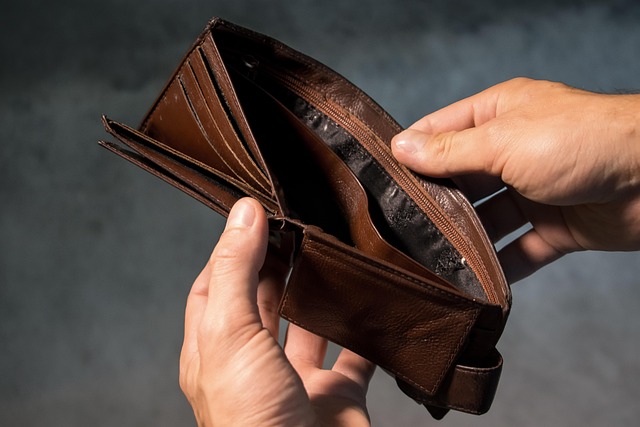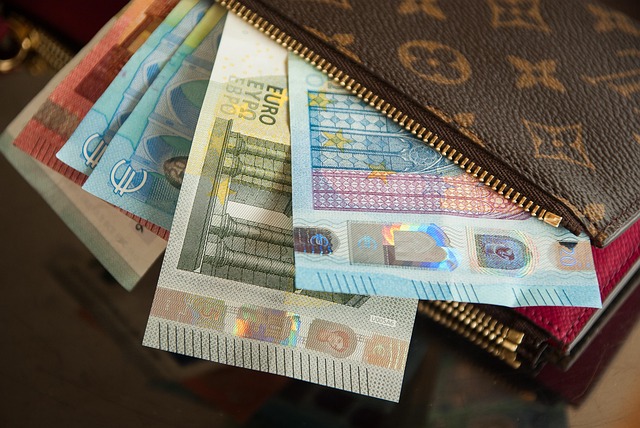Crypto Wallets in 2025: Navigating the Future of Digital Assets
Author: Jameson Richman Expert
Published On: 2025-05-14
Prepared by Jameson Richman and our team of experts with over a decade of experience in cryptocurrency and digital asset analysis. Learn more about us.
In the rapidly evolving world of cryptocurrency, understanding crypto wallets is essential for anyone looking to navigate this digital landscape effectively. With the rise of various cryptocurrencies and the increasing importance of secure transactions, knowing how to choose and use a crypto wallet has never been more vital. This article delves into my personal experiences, the trials I faced, and the lessons I learned while exploring the world of crypto wallets, ultimately leading to a better understanding and successful usage of these digital tools.
When I first ventured into the crypto space, I was overwhelmed by the multitude of options available. It felt like every platform had its own wallet, and I struggled to determine which one was the best fit for my needs. I made numerous mistakes along the way—choosing wallets that lacked security, ignoring the significance of private keys, and even losing access to my funds due to poor management. However, these failures paved the way for my eventual success, as I learned from each misstep and gradually built a solid understanding of what constitutes a good crypto wallet.

Understanding Crypto Wallets
A crypto wallet is a digital tool that allows you to store, send, and receive cryptocurrencies. These wallets serve as the gateway to the world of digital assets, enabling users to engage in transactions, manage holdings, and participate in various decentralized finance (DeFi) activities. There are several types of wallets available, each serving different needs and preferences:
- Hardware Wallets: Physical devices that store your cryptocurrency offline, providing a high level of security against online threats. They are considered one of the safest ways to store cryptocurrencies due to their resistance to malware and hacking attempts. Popular options include Ledger and Trezor, which offer additional features like password protection and recovery options. Hardware wallets are particularly favored by long-term investors who wish to safeguard their assets against online vulnerabilities.
- Software Wallets: Applications or software that allow you to manage your cryptocurrencies on devices, which can be further categorized into desktop, mobile, and online wallets. While they offer convenience, their connection to the internet can pose security risks. Software wallets like Exodus and Electrum provide user-friendly interfaces but require careful management of security protocols. Users must remain vigilant against phishing attacks and malware that can compromise these wallets.
- Paper Wallets: Physical printouts of your public and private keys, offering a completely offline storage method. This approach requires careful handling to prevent loss or damage but can be a cost-effective and secure way to hold crypto for long-term storage. Services like Bitaddress.org can generate paper wallets securely, but users must ensure that their environment is free from malware. It is crucial to understand the risks involved, such as potential damage from physical elements or theft.
Initially, I started with software wallets, which are easy to use and accessible from any device. However, I quickly realized that these wallets could be vulnerable to hacks and malware. One of the first wallets I tried was an online wallet, and I ended up losing a significant amount of crypto due to a security breach. This incident taught me the importance of using wallets with robust security features, as well as the necessity of understanding how cryptocurrencies work.
Exploring Hardware Wallets
After my experience with software wallets, I decided to explore hardware wallets, which store your cryptocurrencies offline. I purchased a popular hardware wallet and found it to be a game-changer. The security it provided gave me peace of mind, and I no longer worried about potential online threats. It was through this transition that I discovered the importance of keeping my private keys safe. A hardware wallet ensures that your keys are stored securely, away from prying eyes.
However, even with hardware wallets, I faced challenges. I once misplaced the recovery seed that was supposed to help me restore my wallet in case of loss. This incident was a harsh reminder of the importance of safely storing backup information. I learned to keep multiple copies in secure locations to mitigate the risk of losing access to my funds. Additionally, I researched various hardware wallet options, learning that some offer advanced features such as biometric authentication, which adds an extra layer of security.
Choosing the Right Wallet for You
When it comes to selecting a crypto wallet, several factors come into play. Security, convenience, and compatibility with different cryptocurrencies are all essential considerations. After years of trial and error, I developed a checklist that helped me evaluate wallets effectively:
- Security Features: Look for wallets with two-factor authentication (2FA), strong encryption, and a good reputation within the community. Also, consider wallets that offer multi-signature support for added security. The implementation of security audits and transparent practices are also indicators of a trustworthy wallet.
- User Experience: The wallet should be user-friendly, especially if you are new to crypto. An intuitive interface can significantly enhance your experience and make it easier to manage your assets. Look for wallets that provide customer support and educational resources.
- Supported Coins: Ensure that the wallet supports the cryptocurrencies you plan to hold, as not all wallets are created equal. Some wallets focus on specific coins while others offer a broader range. Researching the community and market trends can also inform your choices.
- Backup Options: The ability to create backups and restore your wallet is crucial. Evaluate how easy it is to back up and restore your wallet data, and ensure the process is straightforward. Consider wallets that allow you to export your private keys securely.
By following this checklist, I was able to narrow down my options and find wallets that aligned with my needs. For instance, I discovered that Binance offers an excellent platform with a built-in wallet that supports a wide range of cryptocurrencies. Their security measures, such as withdrawal whitelist and regular security audits, along with a user-friendly interface, made it one of my go-to choices.

The Rise of Decentralized Wallets
As I continued to explore the crypto landscape, I became increasingly interested in decentralized wallets. These wallets give users complete control over their private keys, reducing reliance on third-party services. I found decentralized wallets to be a great option for privacy-conscious individuals. However, the learning curve was steep, and I initially struggled with the intricacies of managing my own keys.
I remember the first time I tried using a decentralized wallet; I felt lost and overwhelmed. It took me several attempts to fully understand how to navigate the wallet’s features, such as managing gas fees and interacting with decentralized applications (dApps). After some trial and error, I finally got the hang of it, and it became one of my preferred methods of managing my assets. I started using platforms like MEXC for decentralized trading, which allowed me to manage my funds directly from my wallet without the need for an intermediary.
Earning Crypto Through Wallets
In 2025, many wallets have introduced features that allow users to earn crypto directly from their wallets. This includes staking, yield farming, and interest-bearing accounts. I decided to explore these options, and I was pleasantly surprised by the returns I received. I began using platforms like Bitget to take advantage of these earning opportunities. The process was relatively straightforward, and I found that my crypto holdings were growing without any additional effort on my part. Understanding the principles behind staking and yield farming also helped me make informed decisions about where to allocate my assets.
Common Mistakes to Avoid
Throughout my journey, I encountered several common mistakes that many newcomers make when using crypto wallets. Here are a few that I learned from:
- Not Understanding Private Keys: Your private keys are your access to your funds. Losing them means losing access to your crypto. It's crucial to understand how to manage and protect your keys. Use hardware wallets or secure software solutions to safeguard them. Educate yourself on the importance of key management.
- Ignoring Security Best Practices: Always use strong passwords, enable 2FA, and be wary of phishing scams. Regularly updating your security measures is vital in an ever-evolving threat landscape. Consider using password managers to help keep your credentials secure. Awareness of common scams can also prevent significant losses.
- Neglecting Regular Backups: Regularly back up your wallet and store the recovery seed in a safe place. Consider using encrypted cloud storage or physical safes for extra security. Make sure to test your backup process to ensure it works as intended. Establish a habit of checking your backups periodically.
These mistakes taught me the importance of being vigilant and proactive about security. I learned that taking small steps to secure my wallet could save me from significant losses down the line, emphasizing the importance of continuous education in the crypto space. Joining online communities and forums can also provide valuable insights and updates on best practices.

The Future of Crypto Wallets
Looking ahead to 2025, I see a bright future for crypto wallets. As technology continues to advance, we can expect wallets to become even more user-friendly, secure, and feature-rich. Innovations like biometric security, integration with decentralized finance (DeFi), and enhanced user interfaces are likely to become standard. I believe that as more people adopt cryptocurrencies, the demand for reliable and secure wallets will only increase.
I also anticipate that platforms like Bybit will continue to expand their offerings, providing users with more ways to earn and manage their assets efficiently. The integration of educational resources within wallets could also help newcomers navigate the complexities of the crypto space. We may see features that simplify the onboarding process, such as tutorials or live support. Collaborative features that allow users to share tips and best practices within their wallets could further enhance the user experience.
Conclusion
In conclusion, my journey through the world of crypto wallets has been both challenging and rewarding. The lessons I learned from my failures have shaped my understanding of what to look for in a wallet. By choosing the right wallet, focusing on security, and exploring new earning opportunities, I have successfully navigated the complexities of the crypto landscape. As we move into 2025, I encourage everyone to stay informed and proactive about their crypto management. The right wallet can make all the difference in your cryptocurrency journey.
For those looking to get started, consider exploring the options mentioned above. Whether you choose a centralized exchange like Binance or a decentralized platform like MEXC, there’s a wallet out there that fits your needs. Embrace the world of crypto, and remember that every mistake is a step toward success. The future of cryptocurrency is promising, and being well-equipped with the right tools will empower you on your financial journey.
Further Resources
To deepen your understanding and enhance your experience with crypto wallets, here are some additional resources:
- CoinDesk: What is a Cryptocurrency Wallet?
- Investopedia: Hardware Wallet
- NerdWallet: What Is a Cryptocurrency Wallet?
- Blockchain.com: How to Secure Your Crypto Wallet
Staying updated with the latest trends and security practices in cryptocurrency will significantly benefit your investment journey. Always remember to conduct thorough research and seek out reliable information as you navigate this exciting landscape.